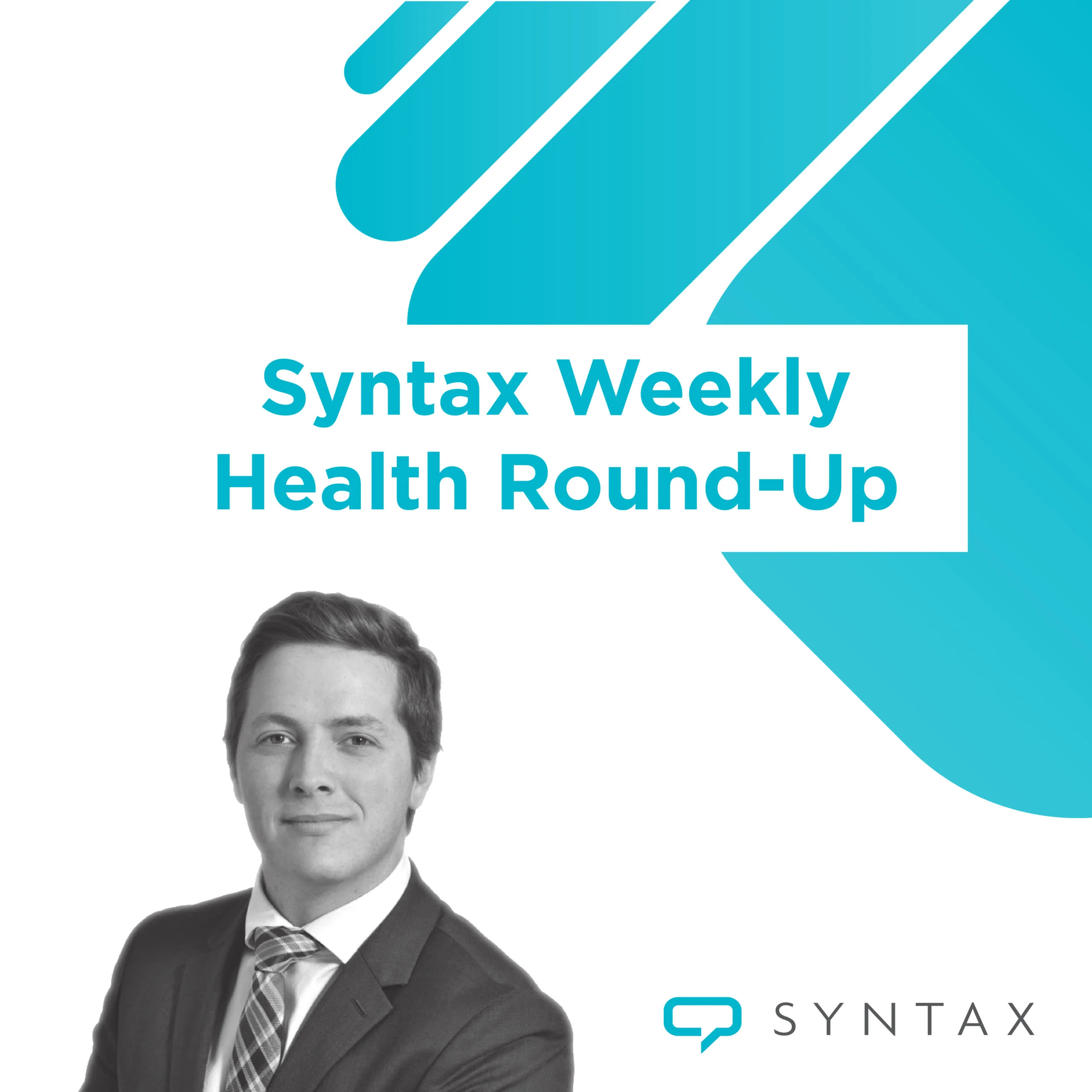Insights | Blog
Alberta, Ontario, and Saskatchewan team up to tackle mental health and addiction challenges
Alberta, Ontario, and Saskatchewan announce they are teaming up to build systems of care focused on recovery for those living with mental health and addiction challenges. On that, and more, here is your Syntax Weekly Health Round-Up.
On the Hill
- When MPs return from the two-week Easter break, the Standing Committee on Health will continue with its ongoing study of Women’s Health. Written submissions of no more than 2,000 words continue to be accepted by the committee for the study. The committee will also consider a motion by Liberal MP Marcus Powlowski to study the treatment and prevention of cancer in Canada.
Around Government
- The Prime Minister and his Cabinet fanned out across the country in an election-style, pre-budget press tour announcing various measures and spending commitments that will be advanced in the federal budget, to be tabled on April 16. Among the many announcements was a $1-billion commitment to launch a national school food program, with the objective to deliver meals to 400,000 students annually by the 2024-2025 school year. Health Minister Mark Holland has commented that this should achieve significant improvements in health outcomes for kids. Also to be included in Budget 2024 will be funding to move toward a national pharmacare program, with diabetes medication and contraception for women to be on offer immediately upon launch.
Around the Dominion
- Recently, the Government of PEI signed a $29-million bilateral agreement with the federal government to help seniors age with dignity closer to home through improved access to home and community care and long-term care.
- In New Brunswick, the provincial government recently signed bilateral agreements with the federal government to improve healthcare and help seniors age with dignity. In total, the province will receive more than $430 million over 10 years to improve access to primary care, improve health data collection, streamline credential recognition, improve mental health and addictions services, and improve access to home care and safe long-term care facilities for seniors.
- The Governments of Alberta, Ontario, and Saskatchewan announced they are establishing a partnership to build systems of care focused on recovery. The agreement, struck by the Ministers for Mental Health and Addictions of Alberta, Ontario, and Saskatchewan, is intended to break down barriers and increase access to recovery-oriented care, support the sharing of best practices, advance partnerships with Indigenous communities, and advocate to the federal government for investment and policies that support recovery.
- In Quebec, the federal government and the Government of Quebec recently signed two bilateral agreements to support initiatives to improve healthcare, with over $3.7 billion in federal funding provided to improve healthcare in Quebec. These agreements represent the first funding under the government's commitment to invest $6.7 billion in Quebec over a 10-year period. Initial funding of $2.5 billion will be provided to support Quebec’s Department of Health and Social Services' 2023-2027 strategic plan. The funding is targeted to improve access to family health teams, reduce surgical and diagnostic backlogs, accelerate the digital shift in the healthcare network, and improve mental health services. The funding will also support Quebec’s five-year action plan to help seniors age with dignity close to home.
- The Premier of Manitoba announced that, as part of the urban renewal of Winnipeg’s Portage Place, a new 300,000-sq.-ft, 12-storey Health-Care Centre of Excellence will anchor the redevelopment while providing access to key services including a primary-care clinic, mental health and addictions support services, and additional renal dialysis capacity.

